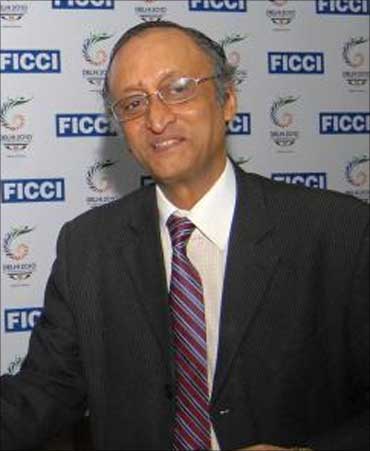
Over the past few weeks, Dr Amit Mitra, secretary general, Federation of Indian Chambers of Commerce and Industry, has been shuttling between New Delhi, Washington and Mumbai, coordinating the United States-India Business Council and the Department of Commerce Entrepreneurial Summit in Mumbai -- which Federation of Indian Chambers of Commerce and Industry is hosting with the Confederation of Indian Industry -- to be keynoted by President Barack Obama.
The Ficci chief discusses expectations and perceptions with India Abroad.
![]()
What are India Inc's expectations of the Obama visit?
The Obama visit can be a defining moment because this is a man towards whom India looks up as somebody different -- a man with a vision.
While our relationship always -- and mature relationships always -- have differences, this visit can bring a new platform.
For example, even after post-Cold War, India has remained on the List of Entities -- four companies are still on the Entities List.
Down from 247 to four.
But you still find Defense Research and Development Organization and Indian Space Research Organization on it, which is anachronistic and obsolete.
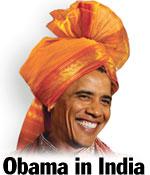
. . .
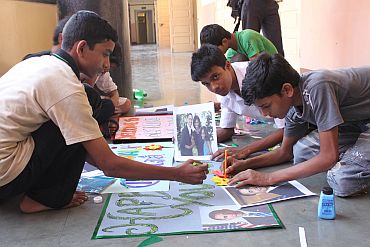
My own expectation is that the President understands that symbolically this is important (to strike these Indian entities off the list).
Number two, our importing technology in terms of dual-use, we have a much larger obstruction than the strategic partners of Europe.
Ficci has dug up a table from the department of commerce which shows that out of 16 rubrics of technology, the US still denies India 10 out of 16, whereas for the Europeans it denies three to four.
They are strategic partners and we, post-nuclear deal, we are almost equal strategic partners.
So, we hope that the President will have something to say if it goes down from 10 to six, 10 to four, and would put us on par with Europe.
Why is this so important?
The US doesn't manufacture television sets. It doesn't manufacture sound systems. What they have, which is of global value, is the technology.
To give you just an example, in railways, we were to manufacture engines, and (former Indian railway minister) Lalu Prasad Yadav tried it under the public-private partnership route.

. . .
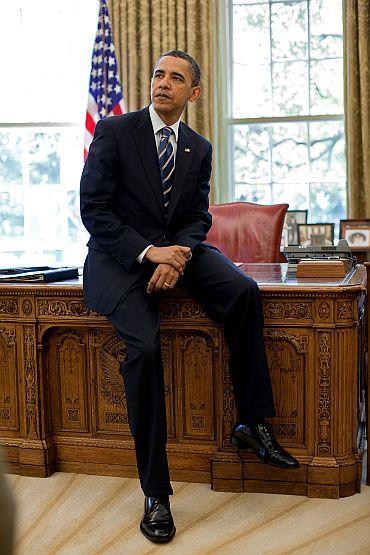
Two American companies, GE and EMD, make diesel engines in the world -- nobody else does. They applied, one pulled out. It remained on GE.
Yadav went to the cabinet and said, single bid and so now railways will build it.
Mamata Banerjee became railway minister and said, I do not want railways to expend money where somebody else can do it for us at a competitive, globally cutting-edge technology level.
Once again there have been only two applicants and we are still waiting But whoever it may be in the qualification bid, it has to still remain two and both are Americans -- EMD and GE. . .
The point I am making is, how is that good for both (India and America)? What is the win-win? First, the total purchase is $4.5 billion over 10 years.
Investment is about $250 million to $300 million.
What is in it for America? Out of the $4.5 billion, they have to import $1 billion from the plant in the US.

. . .
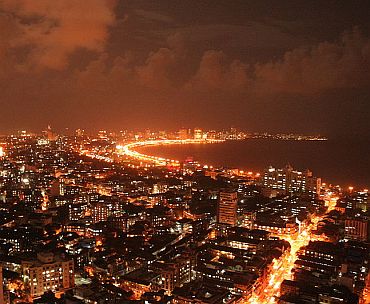
Totally new jobs. What is in it for India? Cutting-edge technology and 3,000 jobs in Marhowra and Madhepura where two plants will be built.
If the qualificational bid can be closed, since there are only two, one or the other will get it and it is a tremendous win-win because the US supplies to (Indian) railways, saving railways that money -- $250 million to $300 million -- because they will build the plant. What will the US gain?
A $1 billion out of $4.5 billion will come from US exports because initially you have to export the export components from here (the US).
The US creates jobs and India creates jobs -- a perfect win-win scenario.
So, this trip can be a defining trip in win-win options for US and India, where we have jobs, the US has jobs, they make investment, we get technology -- that's the combination.

. . .
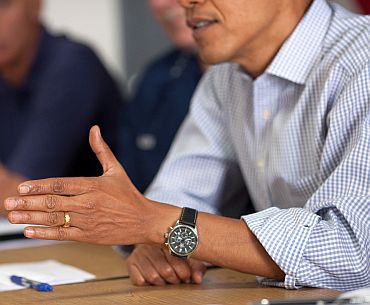
How this Entities List and Dual-Use Technology Regime comes into play is that if it is over for India at least to a great degree and the Entities List goes down, deals like this, like the railways example, can happen.
Also, Bharti Airtel telecom's main order has been given to IBM.
The African proposal of $11 billion that they have taken, the entire program is being given to IBM -- 15 African countries.
(Indian Finance) Minister Pranab Mukherjee mentioned about 100,000 kiosks being opened in India, 83,000 of which are information technology kiosks. It has already been rolled out.
What computers will you use? Dell.
Imagine the amount of computer software that will go into e-governance, e-health, e-education and the US has a competitive chance and socially tremendous (potential) for the poor people of India.

. . .
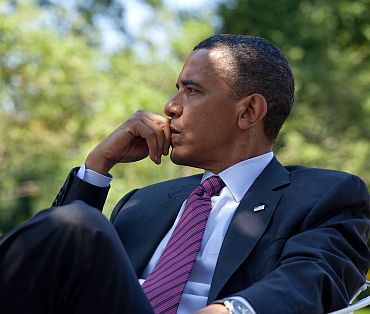
Take, for example, the supply chain for fresh fruit and vegetables.
The US is the world's best and we (India) have 40 per cent fruits and vegetables wasted.
Can the President of the US say that we will have a synergy in agriculture where processing of wasted material can be reduced significantly by technology collaboration between the US and India?
Who benefits? The farmer. They get a better price, who benefits? India.
How? Forty per cent wastage of fruits and vegetables, 20 percent wastage of grains goes down. Who benefits?
The United States. Why?
They will be the technology suppliers. They will export some of it.
They may even come with foreign direct investment and bring components from the US. So, here's another perfect win-win model.
In this visit by President Obama, we want to see win-win outcomes.
. . .

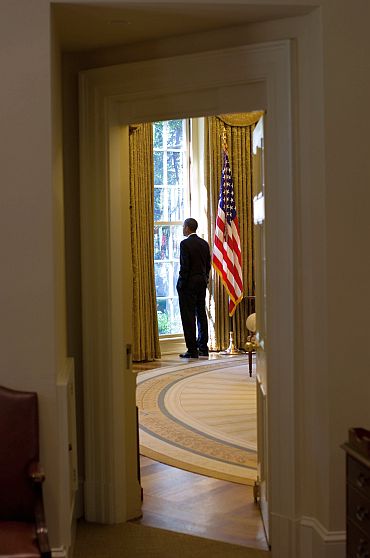
In terms of deliverables, is India expecting the Entities List to be redefined at least?
Absolutely. One clear deliverable is dual-use technology and this technology denial regime must go.
That will give a great confidence building exercise in that the US now really thinks of India as a strategic partner.
President Obama is facing 10 percent unemployment in the United States; what does he need? He needs that in the Indo-US relationship, jobs are created in the United States.
What does India need? India needs the technology prowess of the US -- in agriculture, in science and technology, in military, in defense.
What is the US expecting to gain? C-17 aircraft if that works out. Boeing is supplying 28 aircraft to Air India alone.
Unfortunately, they couldn't deliver on time. They were to deliver in March.
But when it happens, the 28 aircraft are delivered, a billion dollars spent in aviation produces 10,000 jobs in the US.
So, can you imagine if they had been able to supply this on time? Thousands and thousands of jobs would have been created by the supply to India.

. . .
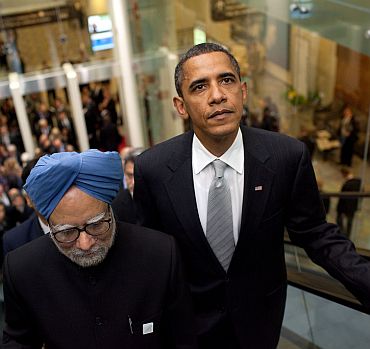
There is a lot of angst in the US over India's nuclear liability bill. Your take?
For Ficci, this is not a US-India issue. For Ficci, this is an Indian industry issue.
Indian industry has been supplying to the nuclear development of India for the last 40 years.
Now, if this means that the liability would be unbearable, the liability would be such that small and medium enterprises are able to take it, it's the Indian companies which will be most concerned.
So, let us not make this a US-India conflict.
It is Indian business which is at stake the most.
So, we are looking at working something out at the contractual level, which will give a cushion to this.
For example, the US has a liability fund which they have developed after years of experience of 110 nuclear reactors. India doesn't have a liability fund.
. . .

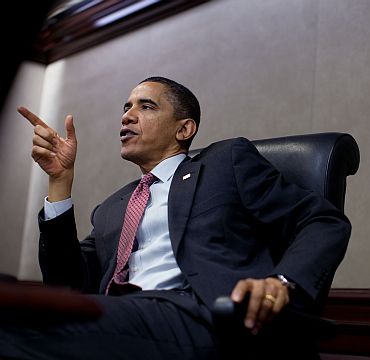
Maybe it's time for a government PPP where the government and private sector come together globally, nationally, into a nuclear liability fund.
Then the bill is no problem. Then insurance that is required can be done through the fund. . . .We have to find a solution by which Indian industry, and then of course others can become a part of this great trajectory of supplying 274,000 megawatts of power by a nuclear process in the next 10 years.
So, for that, maybe an insurance fund is the answer. Legislation is over. Legislation cannot be reversed. Even the Russians have objected recently (to the bill).
Democrats, including President Obama, have been railing against outsourcing.
Naturally there is a huge concern that Americans are losing jobs. But we have to take it in our stride.
First, we must convince by substantive data that if any outsourcing happens, it really saves American jobs because that company, which would have closed due to its inefficiency in competition with the Chinese or the Koreans, is saved.
. . .

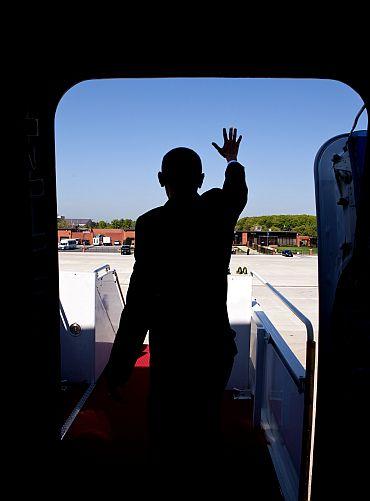
If they didn't do that outsourcing, more American jobs would have been lost. This is something we have to convince people; we can't just brush it aside and say they should have understood.
Number two, what is missing in this discourse, are two studies by Ficci that huge investments are coming from India and this investment is creating jobs after jobs after jobs -- 374 (Indian) acquisitions in the US.
All those companies would have closed. There have been 127 greenfield investments in the US, all creating new jobs that wouldn't have existed.
Today, our FDI by Indian companies in the US is larger than US FDI into India, which is an indication of a win-win option. . .You have to explain to them (critics of outsourcing) about Indian investments in the US creating jobs -- this reverse outsourcing. . . .It is not easy to get that message across.
So, we have to make a much larger effort through the media like you to say that 74 per cent of the outsourcing benefits come to American companies and only 26 per cent can go to the one from which it is outsourced.
This is a US Chamber of Commerce Study which I am quoting.
